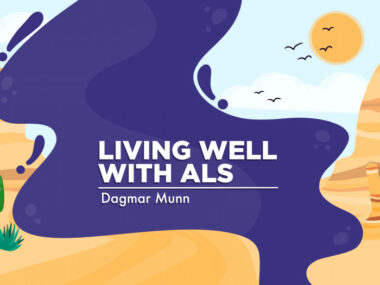Pregnancy can speed ALS severity and progression, review study finds
Most newborns were healthy, but symptoms advanced for majority of mothers
Written by |

Pregnancy can worsen the progression of amyotrophic lateral sclerosis (ALS), regardless of whether symptom onset occurs before or during pregnancy, according to a review study.
Still, most of the cases reviewed showed that ALS did not affect a woman’s ability to give birth, naturally or by cesarean section, or the health of the newborn.
“While pregnancy with ALS is likely to … result in giving birth to healthy infants, it could be associated with rapid or severe progression of ALS and result in a worse prognosis [likely disease course],” the researchers wrote. “Due to the rarity and complexity of ALS during pregnancy, there is a need to enhance our understanding of the disease and its management in this context.”
The review study, “Clinical characteristics, course, and outcomes of amyotrophic lateral sclerosis overlapping with pregnancy: a systematic review of 38 published cases,” was published in the journal Neurological Sciences.
Review of 38 worldwide cases reporting a pregnancy in a woman with ALS
A progressive neurological disease that affects the muscles, ALS symptoms include muscle weakness and atrophy (shrinkage), leading over time to paralysis. While the condition is typically diagnosed in middle age and is more prevalent in men than women, it can occur in younger adults, with isolated cases identified during pregnancy.
Pregnancy can exacerbate some ALS symptoms, challenging its management, and disease treatments usually are not recommended for pregnant women.
“Close monitoring and coordinated care between the patient’s healthcare providers are essential to manage the disease effectively during pregnancy and ensure the best possible outcomes for both the mother and the baby,” the researchers wrote.
However, little is known about the impact of ALS on pregnancy, including how it affects the disease’s course or the developing fetus.
A team of researchers in Egypt, Jordan, and Algeria reviewed published studies reporting on ALS cases overlapping with pregnancy. They found a total of 26 articles covering 38 worldwide cases of ALS and pregnant women, published between 1993 and 2022.
These women were between the ages of 21 and 42, with 18 pregnancies occurring before the age of 30. ALS symptoms began either before pregnancy (18 cases), during pregnancy (16 cases), or directly after pregnancy (four cases). Among 21 women with a recorded history, seven were having a first pregnancy.
A majority of these patients (55%) experienced rapid or severe ALS progression during their pregnancy, while the others (45%) had stable disease progression. Most cases with onset before pregnancy (61%) and about half of those with ALS onset during pregnancy (46%) had rapid or severe progression while pregnant.
Respiratory and speech difficulties among noted signs of ALS progression
Following a pregnancy, most women (63%) also showed rapid or severe progression, with the other 37% having stable progression.
Respiratory insufficiency with a need for invasive ventilation most often marked progression in these women, with speech problems (dysarthria) also noted.
Of the 37 cases reporting on an infant’s delivery, 35 (95%) noted successful live births and two were stillbirths. Most patients (67%) did not carry the pregnancy for a full nine months. Cesarean section was the delivery method in 10 cases, vaginal births in nine patients, while the rest were not recorded.
Almost all newborns (86%) were healthy without complications after delivery. Three others had short-term complications, and one infant was born with minor congenital heart defects.
“Our results support the hypothesis that pregnancy increases the potential for severe and rapid ALS progression, regardless of the timing of ALS onset in relation to pregnancy,” the scientists wrote.
Further research is needed, they added, as “a better understanding of ALS in pregnancy can help guide clinical decision-making and improve outcomes for both the mother and infant.”






